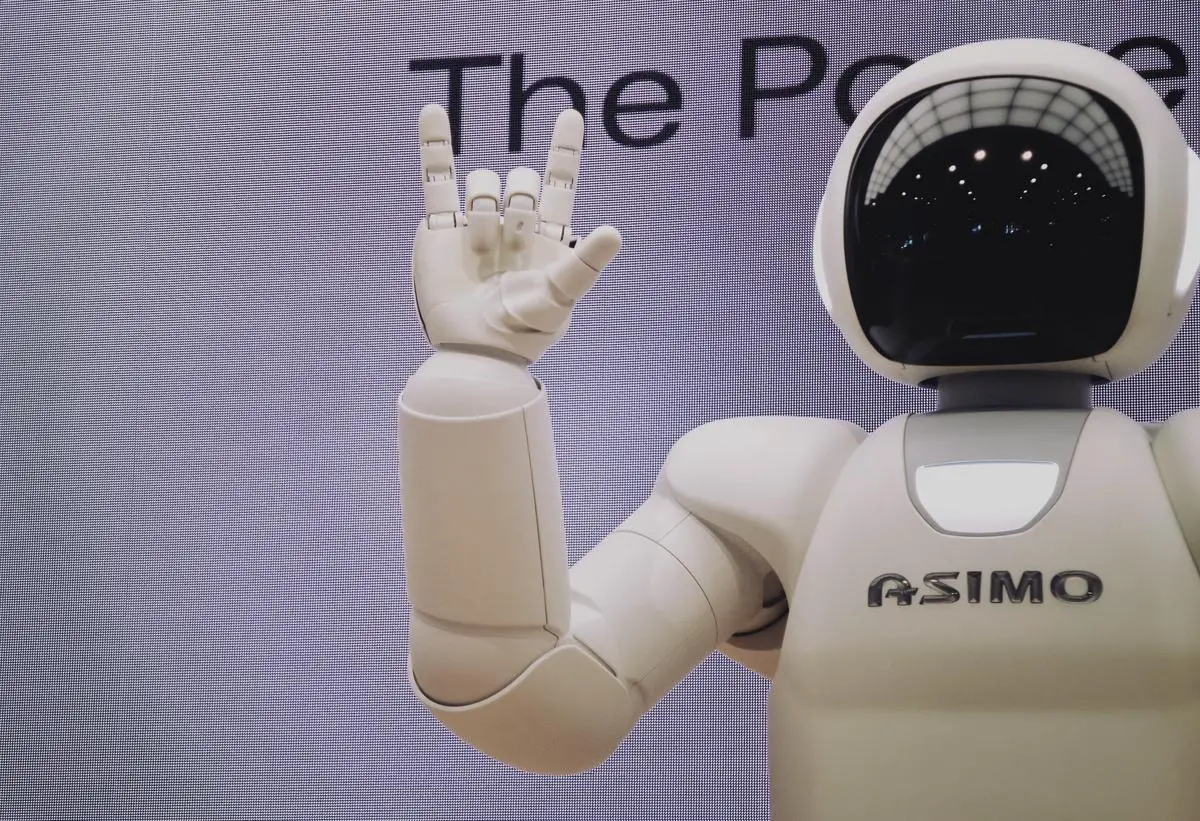Unfolding the pages of technological advancements, one cannot help but take note of the profound impact Artificial Intelligence (AI) has had across various sectors, among them being content creation. Human intellect gave birth to AI, and its constant evolution has revolutionized processes, shaping the digital world as we know it. As AI continues to infiltrate every nook and cranny of industries, we see it giving a fresh dimension to content creation—making it more strategic, personalized, and engaging. While on the surface it appears to be a seamless integration, a binary perspective presenting pros and cons lurks underneath. This discussion seeks to shed light on the interplay between AI and content creation, elucidating its merits, demerits, and rendering a glimpse into the future of this fascinating continuum.
Understanding AI and its role in Content Creation
Overview of Artificial Intelligence
Artificial Intelligence (AI) is an area of computer science that emphasizes the creation of intelligent machines that work and react like humans. It was first conceptualized in the 1950s and has since made significant strides, heavily permeating various sectors —business, healthcare, transport, and more recently, content creation.
AI in content creation can be used to generate text, design graphics, curate content, deliver personalized content, and analyze audience engagement. It’s increasingly being relied upon due to its capability to save time, reduce costs, and create a vast amount of content in a relatively short period.
Pros of AI in Content Creation
- Increase in Efficiency and Volume: Through automating the content creation process, AI allows for vast amounts of content to be generated quickly, significantly reducing the time and human resources that would otherwise be required. This automation allows for a higher volume of content, leading to a more dynamic and informative platform.
- Consistency and Accuracy: AI-powered tools have the ability to maintain more consistency in the style, tone, and quality of content over time compared to human writers. Moreover, these tools can remove human error from the equation, leading to more accurate content.
- Data Analysis and Personalization: AI can analyze large sets of data and utilize the findings to create personalized content targeted at specific audience segments. This aspect raises the level of interactivity and engagement of the content, significantly increasing its impact.
- Cost Savings: AI can dramatically decrease the costs associated with content creation by reducing the need for a large team of content creators and editors.
Cons of AI in Content Creation
- Lack of Creativity and Emotional Depth: While AI can mimic human writing and mimic human tones, it lacks the human touch. It can’t generate content with the same emotional depth, creativity, and individuality of human content creators, which could lessen the impact of the content it produces.
- Data Privacy Concerns: AI relies on collecting and analyzing vast amounts of data to function effectively. This reliance has raised concerns regarding data privacy and user confidentiality.
- Possible Job Loss: AI’s automation capabilities could reduce the need for human content creators. This possibility could potentially lead to significant job losses in the content creation industry, especially when AI becomes more mature and widespread.
- Dependence on Algorithms: AI’s dependency on algorithms can limit its application in sectors demanding a high level of creativity, innovation, and spontaneity.
Summing Up
Artificial Intelligence’s (AI) application in content creation is a double-edged sword, holding potential perks and pitfalls. It’s pivotal to weigh these aspects for optimizing benefits while curbing any adverse impacts. While AI emerges as a formidable force amplifying content creation’s efficiency, its utilization should harmonize with human intervention to maintain the content’s creativity, originality, and emotionality that resonates with the target audience.

Pros of Using AI in Content Creation
In the domain of content creation, Artificial Intelligence (AI) has developed into a compelling asset for businesses and establishments. The advantages it offers are far-reaching, spanning from bolstering productivity to ensuring uniformity and scale. Furthermore, AI’s dexterity in dissecting data and forecasting tendencies is key in tailoring personalized content. Let’s take a closer look at these boons.
AI systems can streamline the content creation process by automating repetitive tasks. This aspect not only saves time but also reduces the likelihood of human errors. For instance, Netflix uses AI to create synopsis for films and TV shows, maintaining a consistent format across all descriptions.
The consistency provided by AI extends to the tone and style of content as well. With machine learning, AI can mimic the writing style of a specific author or maintain a specific tone across various contents, ensuring a uniform brand voice. The Washington Post’s AI technology, Heliograf, was used during the 2016 Rio Olympics to produce short reports on sports events, maintaining the newspaper’s standard written tone.
Creating large volumes of content can be quite labor-intensive, especially for large organizations or platforms. AI significantly enhances scalability by generating high volumes of content quickly. Automated Insights’ WordSmith is a natural language generation platform used by the Associated Press to generate news stories on earnings reports. More importantly, it can write thousands of articles in the same amount of time a human journalist would take to write just one.
AI’s ability to analyze vast amounts of data allows it to identify patterns, trends, and insights that could be missed by humans. These insights can be leveraged to create more relevant and targeted content. Google’s AI, for instance, uses search data to predict what type of content will be more appealing to its users, thus aiding content creators in tailoring their content to suit user preferences.
Furthermore, AI can also help predict future trends, enabling businesses to stay ahead of the curve. Buzzfeed has utilized machine learning to predict the viral potential of its content, optimizing their distribution efforts based on these insights.
Additionally, AI can custom-tailor content to meet individual user’s interests and preferences. Content platforms like Netflix and Spotify use machine learning algorithms to provide personalized recommendations based on users’ viewing or listening history. This high level of personalization helps keep the audience engaged and enhances user experience.
In summary, the integration of Artificial Intelligence in content creation has revolutionized the sector by offering advantages like efficiency, consistency, scalability, valuable data insights, and personalized content. The real-life examples mentioned reveal the extent to which AI can enhance content creation when used properly.
Just as a coin bears two faces, artificial intelligence (AI) in content creation too comes with its perks and challenges. With benefits such as increased efficiency and innovation, AI also brings along inherent drawbacks like the loss of human touch in content, hefty initial installation costs, ethical concerns, and a constant need for monitoring. With a good grasp of these issues and an appropriate strategy in place, we can amplify the advantages of AI whilst controlling any negative implications.

Cons of Using AI in Content Creation
The Human Element in AI Content Creation
Artificial Intelligence (AI) has indeed made leaps and bounds in the realm of content creation, contributing in varied aspects like text generation, video production, and graphic design. Despite these advancements, the quintessential human touch often goes amiss in AI-produced content. AI algorithms are designed to learn from and replicate data patterns without understanding the complexity of human emotions, cultural subtleties, and personal preferences that significantly shape and sway the content’s draw on its audience. As a result, we may encounter content that, while on point grammatically and factually, lacks a personal feel, resulting in an impersonal, robotic tone.
Managing Complex Tasks in AI Content Creation
Another limitation of AI in content creation is difficulty in managing complex tasks. While AI excels at processing large amounts of data quickly and accomplishing straightforward, rule-based tasks, it struggles with assignments that require a deep understanding of the subject matter, nuanced interpretations, or creative thinking. Human content creators, on the other hand, can leverage their knowledge, intuition, and creativity to tackle more complex projects, which makes them indispensable in certain aspects of content creation.
Risks of Over-Reliance on AI in Content Creation
There’s also a risk in over-reliance on AI for content creation. While it can be tempting to automate as much of content creation as possible to save time and resources, this can lead to content saturation, where the market is flooded with similar, algorithm-generated content, causing a decrease in audience engagement. Additionally, relying too heavily on AI tools for content creation may lead to a diminishing ability of human staff to create, modify, or understand content, which in turn could make companies vulnerable if their AI systems encounter issues or need to be decommissioned.
Ethical Issues in AI Content Creation
There are also potential ethical issues introduced by the use of AI in content creation. For example, if not properly monitored and managed, AI could unfairly bias content towards certain viewpoints based on the data it was trained on. Furthermore, AI content creation has raised concerns around intellectual property rights, as it blurs the line of authorship — does the copyright belong to the person who created the AI, the person who input the data, or the machine?
The Intersection of Human Creativity and Artificial Intelligence
Indeed, advancements in AI may seem monumental, but the importance of human creativity and emotional engagement in content creation cannot be overshadowed. Content crafted by humans often conveys an added layer of depth, inherently touching human audiences on a personal level through compelling narratives and emotion-stirring images. This ability to change perceptions or influence emotions remains a skill unique to humans. Moreover, human creators have the ability to interpret the world around them, drawing from personal experiences and adapting their content to changing societal norms. Their contributions are invaluable and irreplaceable, something that AI, in its current state, cannot rival. However, this does not discount the potential contributions of AI to the content creation process. Rather, it underscores the need for a harmonious working relationship where AI can augment human creativity and productivity.

Photo by possessedphotography on Unsplash
Implications of AI development for the Future of Content Creation
The Impact of AI on Content Creation: Advantages
Employing AI in content creation has proven beneficial in numerous ways, from boosting efficiency and decreasing costs to enhancing the overall creative process.
- Improved Efficiency: Compiling content using AI tools speeds up the process significantly. These algorithms are capable of analyzing large volumes of data within seconds and generating specialized content like weather updates, financial reports, and news briefings, thereby allowing human teams to concentrate on tackling more complicated tasks.
- Cost Reduction: Because AI tools operate without needing rest and can work around the clock, the need for large content teams and the costs associated with producing lengthy content can significantly reduce.
- Insights from Data: Modern AI-enabled tools provide content creators with actionable insights about audience preferences by analyzing behavioral data, thus enabling the formation of effective content strategies.
- Customized Content: AI stands out in its ability to generate highly personalized content informed by individual user tastes. This ability to create an immersive and individualized content experience is pivotal in attracting and holding audience attention.
AI in Content Creation: Cons
However, the implementation of AI in content creation also presents several challenges and potential pitfalls.
- Loss of human touch: Although AI can create articles and blogs based on data, it lacks the personal experience and emotional depth humans bring to content. AI-generated content might be technically correct but lacks a human perspective, creativity, and emotional connection.
- Job Displacement: An increased reliance on AI for content creation might lead to job losses in the content creation sector as machines start to perform tasks traditionally done by humans.
- Ethics and Responsibility: There might be ethical issues and questions around accountability when AI is used for content creation. Determining who is responsible for any mistakes or inaccuracies that an AI tool makes can be challenging.
- Lack of Context Understanding: AI might produce nonsensical or irrelevant content due to its inherent inability to understand complex contexts, implicit meanings, metaphors, and cultural nuances in human communication.
Balancing AI and Human Effort in Content Creation
The key to a harmonious coexistence between AI and human content creators is understanding the strengths and limitations of both. AI can be harnessed for heavy data analysis, pattern recognition, and speedy content production, while humans can be involved to provide creativity, context understanding, and emotional depth.
A collaborative approach, where AI and human content creators work together, leveraging their unique strengths, could provide the most sustainable and effective route for the future of content creation. Building in comprehensive ethical guidelines and exploring legislative regulations for AI-created content can also help address responsibility issues and preempt potential professional displacement.

As the ripples of AI sways into content creation, the line between innovation and ethical concerns is incredibly thin. On one hand, AI is a dynamic tool that offers precision, speed, and scalability, making it an undeniable asset in the realm of content creation. Conversely, the questionable aspects such as its lack of emotional prowess, potential threat to creative jobs, and risk of over-reliance cannot be effectively sidelined. Going forth, as the veil of the future unravels, it is vital for a symbiotic existence between AI and human authorship. This intertwining of human creativity and machine efficiency could potentially herald a new age of content creation, holding promise for a future where AI is not a replacement, but a complementary asset to human ingenuity.